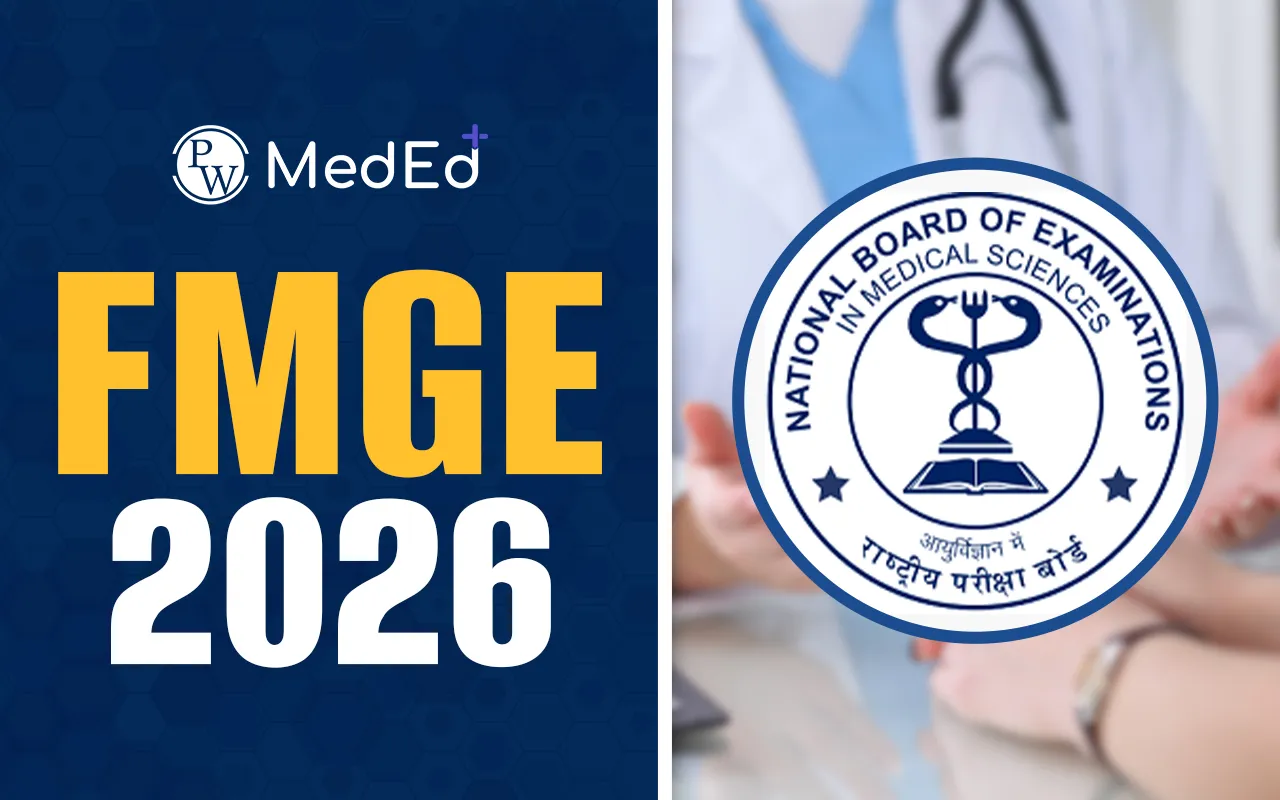
Physiology is a crucial subject for NEET PG, laying the foundation for understanding various medical concepts and forming the basis for pathology, pharmacology, and medicine. To excel in NEET PG Physiology, focus on key topics like the Cardiovascular System, Renal System, Endocrinology, Neurophysiology, and General Physiology. Mastering these areas involves understanding fundamental concepts, practicing multiple-choice questions (MCQs), and using diagrams for better retention. Important questions often cover the mechanisms of physiological processes, such as the cardiac cycle, urine formation, hormonal functions, and neurotransmission. Regular revision and referring to standard textbooks like "Guyton & Hall" and "Ganong's Physiology" will significantly boost performance and conceptual clarity for the exam.
Download : PW Med Ed app
Importance of Physiology in NEET PG
Physiology is a crucial subject in NEET PG as it forms the foundation of medical concepts. A strong grasp of physiology helps in understanding pathology, pharmacology, and medicine. NEET PG includes conceptual and application-based questions from this subject.
Key Topics Covered in NEET PG Physiology:
- General Physiology
- Cardiovascular System
- Respiratory System
- Renal System
- Endocrinology
- Neurophysiology
- Gastrointestinal Physiology
General Physiology Important Questions
This section includes basic concepts that form the foundation for advanced topics. Questions often test fundamental understanding.
Sample Questions:
-
What are the different types of transport across the cell membrane?
-
Explain the role of Na+/K+ ATPase in cellular function.
-
What is homeostasis, and how is it maintained?
-
Define osmolarity and tonicity with examples.
System-wise Important Questions
Different systems in physiology have high-weightage topics that need focus.
Cardiovascular System:
-
Explain the cardiac cycle and its phases.
-
How is blood pressure regulated?
-
Describe Starling’s law of the heart.
-
What is the significance of baroreceptors and chemoreceptors?
Respiratory System:
-
How is oxygen transported in the blood?
-
What is the Bohr effect and Haldane effect?
-
Explain lung compliance and its clinical significance.
Renal System:
-
Explain the mechanism of urine formation.
-
What are the functions of different parts of the nephron?
-
Describe the renin-angiotensin-aldosterone system (RAAS).
Endocrinology & Neurophysiology Key Questions
These topics include hormones and nervous system functions, which are frequently tested in NEET PG.
Endocrinology:
|
Hormone |
Function |
Disorders |
|
Insulin |
Lowers blood glucose |
Diabetes mellitus |
|
Thyroxine |
Regulates metabolism |
Hypo/Hyperthyroidism |
|
Cortisol |
Stress response |
Cushing’s & Addison’s Disease |
Neurophysiology:
-
What are the types of neurotransmitters and their functions?
-
Explain the structure and function of the blood-brain barrier.
-
How does synaptic transmission occur?
-
What is the difference between sympathetic and parasympathetic nervous systems?
Single Choice Based Questions for NEET PG
Practicing MCQs is essential for exam preparation. Here are 10 important single-choice questions with answers:
-
Which ion is primarily responsible for depolarization in nerve conduction?
-
A) Sodium (Na+)
-
B) Potassium (K+)
-
C) Calcium (Ca2+)
-
D) Chloride (Cl-)
-
Answer: A) Sodium (Na+)
-
The pacemaker of the heart is:
-
A) AV Node
-
B) SA Node
-
C) Bundle of His
-
D) Purkinje Fibers
-
Answer: B) SA Node
-
Which hormone increases blood glucose levels?
-
A) Insulin
-
B) Glucagon
-
C) ADH
-
D) Calcitonin
-
Answer: B) Glucagon
-
The functional unit of the kidney is:
-
A) Glomerulus
-
B) Nephron
-
C) Loop of Henle
-
D) Collecting duct
-
Answer: B) Nephron
-
Which neurotransmitter is inhibitory in the CNS?
-
A) Acetylcholine
-
B) Glutamate
-
C) GABA
-
D) Dopamine
-
Answer: C) GABA
-
The Bohr effect refers to:
-
A) Increased oxygen binding in low pH
-
B) Decreased oxygen binding in low pH
-
C) Increased CO2 binding to hemoglobin
-
D) Decreased CO2 binding to hemoglobin
-
Answer: B) Decreased oxygen binding in low pH
-
Which part of the brain regulates body temperature?
-
A) Medulla
-
B) Cerebellum
-
C) Hypothalamus
-
D) Hippocampus
-
Answer: C) Hypothalamus
-
The Frank-Starling law of the heart states:
-
A) Increased heart rate increases stroke volume
-
B) Increased venous return increases stroke volume
-
C) Increased preload decreases cardiac output
-
D) Increased afterload increases ejection fraction
-
Answer: B) Increased venous return increases stroke volume
-
What is the primary buffer system in blood?
-
A) Phosphate buffer
-
B) Bicarbonate buffer
-
C) Protein buffer
-
D) Hemoglobin buffer
-
Answer: B) Bicarbonate buffer
-
Which enzyme is responsible for breaking down acetylcholine?
-
-
A) Monoamine oxidase
-
B) Acetylcholinesterase
-
C) Catechol-O-methyltransferase
-
D) Peptidase
-
-
Answer: B) Acetylcholinesterase
Tips to Prepare Physiology for NEET PG
Scoring well in physiology requires conceptual clarity and application-based learning. Here are some preparation tips:
- Understand Concepts: Focus on mechanisms rather than rote memorization.
- Practice MCQs: Solve previous year’s questions to identify patterns.
- Use Diagrams & Flowcharts: They help in better retention.
- Refer to Standard Books: Guyton & Hall and Ganong’s Physiology are recommended.
- Revise Regularly: Make short notes for quick revision.
By focusing on these important topics and practicing questions regularly, you can improve your performance in NEET PG physiology
Physiology Important Questions for NEET PG FAQs
What are the key topics in NEET PG Physiology?
How can I improve my preparation for NEET PG Physiology?
What is the importance of Physiology in NEET PG?
How do practice questions help in NEET PG Physiology?
Which books are recommended for studying Physiology for NEET PG?








